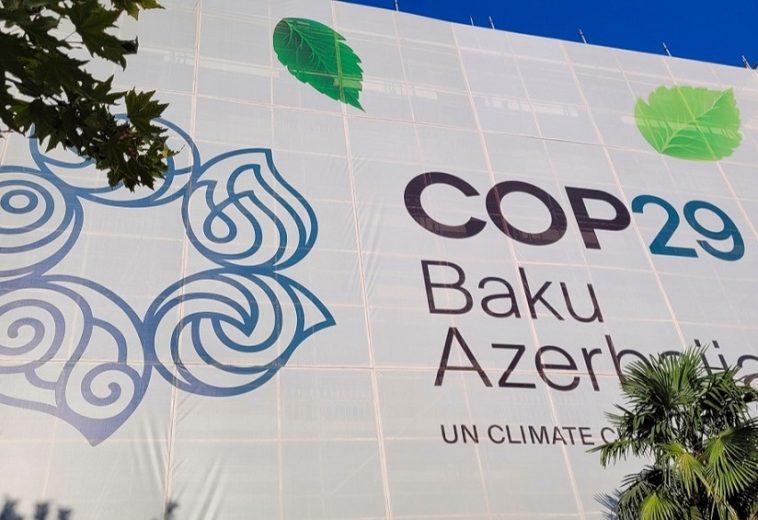World Science Day for Peace and Development, celebrated annually on 10th November, serves as more than a day to reflect on the power of science; it is an opportunity to acknowledge science’s role in fostering peace, promoting sustainable development, and driving progress. This year’s theme, Youth at the Forefront, highlights the critical role of young people in advancing scientific discoveries and tackling global challenges. For Africa, this day is particularly meaningful, as the continent is undergoing a transformative period led by science and innovation. Africa’s journey with science is marked by both obstacles and achievements, yet its potential for scientific progress today is greater than ever.
A Tale of Rich Scientific History
Africa has a long history of scientific achievement. Civilisations such as Ancient Egypt made landmark discoveries in medicine, mathematics, and engineering. The construction of the pyramids, early advances in astronomy, and medical practices laid essential foundations for modern science. However, centuries of colonisation hindered the growth of indigenous scientific research, resulting in the underrepresentation of African scientific contributions on the global stage.
Following independence, African nations began to reclaim their scientific potential. Established in 2001, the African Union (AU) recognised the importance of scientific advancement as a pillar for economic and social progress. Reflecting this, the AU’s Agenda 2063 has placed science, technology, and innovation at the heart of Africa’s development aspirations. This ambitious vision positions science as a vital tool for tackling Africa’s pressing challenges, from poverty and health issues to climate change.
Science and Innovation in Africa Today
Africa is no longer a passive recipient of global scientific advancements; it is increasingly emerging as a producer of solutions. Across agriculture, healthcare, and energy, science is driving positive change and addressing the continent’s unique challenges. From malaria research to renewable energy initiatives, African science is making impactful strides.
The Science of Food Security
Agriculture remains central to Africa’s economy, with over 60% of the population reliant on it. However, challenges in food security persist due to climate change, population growth, and outdated farming practices. Science is helping to counter these issues through initiatives like the Alliance for a Green Revolution in Africa (AGRA), which promotes science-driven solutions to improve crop yields, reduce environmental impacts, and enhance food security.
In countries like Kenya and Nigeria, climate-smart agriculture and the use of genetically modified seeds are enhancing productivity. Kenya, for instance, has reported a 30% increase in maize production over the past decade thanks to these innovations. Dr Agnes Kalibata, President of AGRA, asserts, “Science in agriculture is key to feeding Africa’s growing population and combating food insecurity. It’s not just about growing more food but growing it sustainably.”
Fighting Disease with Science
Africa has faced significant challenges from infectious diseases such as malaria, HIV/AIDS, and tuberculosis, alongside emerging threats like COVID-19. African scientists, however, are achieving breakthroughs in health research that benefit not only the continent but the world.
A notable achievement is the RTS,S malaria vaccine, introduced in 2021, which was developed in collaboration with African scientists and has shown considerable success in reducing malaria cases in countries like Ghana, Kenya, and Malawi. During the COVID-19 pandemic, South Africa became a hub for clinical trials, making valuable contributions to global vaccine research. As the World Health Organisation (WHO) stated in 2023, “Africa’s contributions to health research are indispensable in addressing global health challenges.”
Africa’s Renewable Energy Potential
As the demand for sustainable development grows, Africa’s abundance of renewable energy sources provides a substantial opportunity. Solar, wind, and hydroelectric power are being harnessed to meet the continent’s energy needs. The Moroccan Noor Ouarzazate Solar Complex, one of the largest solar farms globally, exemplifies how renewable energy can power Africa’s future.
Africa has the potential to leapfrog traditional fossil fuels and embrace clean energy solutions. According to the International Renewable Energy Agency (IRENA), Africa could generate up to 10 terawatts of solar energy annually, a resource capable of powering the continent and more. Dr Abderrahim El Hafidi, Director-General of Morocco’s National Agency for Renewable Energy, observes, “Renewable energy is not just an environmental solution but an economic opportunity that can bring jobs, reduce poverty, and improve living standards across Africa.”
Education and STEM: Empowering Africa’s Youth
A significant challenge for Africa is access to quality education, particularly in science, technology, engineering, and mathematics (STEM). Currently, only about 28% of students in sub-Saharan Africa pursue science-related degrees, with an even smaller percentage of women entering STEM fields. Bridging this gap is crucial for Africa’s development.
Initiatives like the African Institute for Mathematical Sciences (AIMS) and Africa Science Week are inspiring and training the next generation of African scientists, many of whom will play critical roles in solving the continent’s pressing challenges. Dr Salim Abdulla, a prominent malaria researcher, emphasises, “The next great scientist in Africa could be sitting in a rural village today, and it’s our responsibility to equip them with the tools and knowledge they need.”
Additionally, programs focused on empowering women in science, such as the initiatives by Women in Science for the Developing World (TWAS), are making strides towards gender equality in STEM, ensuring women have equal opportunities to lead and innovate.
Overcoming Barriers to Progress
Despite promising developments, Africa faces obstacles, particularly in research and development (R&D) investment, which remains below the global average. Many African nations allocate less than 0.5% of GDP to R&D, and the continent struggles with brain drain as talented scientists seek opportunities abroad due to insufficient infrastructure and funding.
These challenges, however, are surmountable. The African Union, governments, private investors, and international partners must prioritise science and technology by increasing R&D funding, improving STEM education, and creating supportive environments for innovation.
Empowering Africa’s Future Through Science
World Science Day for Peace and Development is not merely a celebration; it is a call to action. Africa has the potential to become a global leader in science and innovation, driving its own progress and contributing to global advancements. By investing in education, empowering youth, supporting women in STEM, and bolstering research funding, Africa can realise its scientific potential.
As Nelson Mandela said, “Education is the most powerful weapon which you can use to change the world.” The time to invest in Africa’s scientific future is now. Let us seize this moment to empower the next generation of African scientists, innovators, and leaders who will shape a more sustainable and prosperous future for both Africa and the world.




